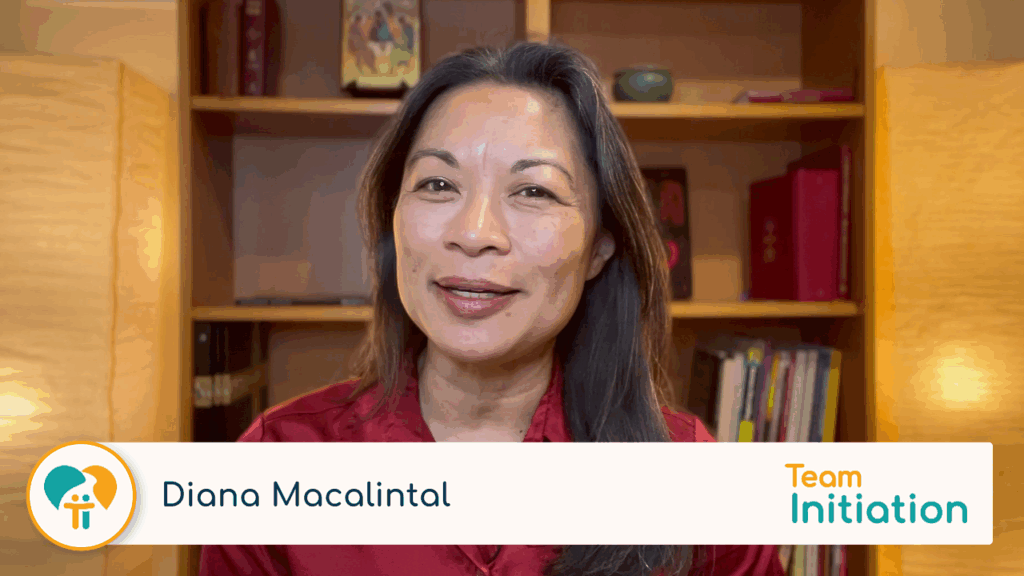 In a recent post, I pointed out that the Decree on the Apostolate of the Laity from the Second Vatican Council instructs that we who are members of the royal priesthood should be especially focused on social action (see paragraph 7). I then drew the conclusion that if our RCIA processes are not making this clear to the catechumens — who are about to join the royal priesthood — we need to reorient our formation processes to prepare them for this mission.
In a recent post, I pointed out that the Decree on the Apostolate of the Laity from the Second Vatican Council instructs that we who are members of the royal priesthood should be especially focused on social action (see paragraph 7). I then drew the conclusion that if our RCIA processes are not making this clear to the catechumens — who are about to join the royal priesthood — we need to reorient our formation processes to prepare them for this mission.
According to the United States bishops, this mandate “is a central and essential element of our faith. Its roots are in the Hebrew prophets who announced God’s special love for the poor and called God’s people to a covenant of love and justice.”
The US bishops went on to say, “Catholic social teaching is built on a commitment to the poor. This commitment arises from our experiences of Christ in the eucharist.”
The US bishops then quote the Catechism of the Catholic Church: “To receive in truth the Body and Blood of Christ given up for us, we must recognize Christ in the poorest, his brethren” (no. 1397).
To talk about social teaching and action in the church is fraught. Most of us are rightly wary of social teaching and actions becoming politicized. Indeed, part of our apostolate as members of the royal priesthood, is to enter into and influence the political sphere as well as all the other temporal aspects of the world. It is possible for us to disagree with other good-hearted people and even other Catholics about the best and most effective ways to enact a commitment to the poor. What is not negotiable is that we must, indeed, be committed to the poor.
Evangelization is the key
The bishops of the Second Vatican Council instructed that everything we do in our apostolate should be motivated by charity. But some expressions of our love “can become specially vivid expressions of this charity. Christ the Lord wanted these works to be signs of His messianic mission (cf. Matt. 11:4-5)” (8).
These “specially vivid expressions” are our keys to evangelization. They are the signs of Jesus’s messianic mission — the mission of salvation of the world. In their decree on the laity, the bishops of the Second Vatican Council make clear these “vivid expressions” are not inventions of the council. They are mandates from Jesus, who told us, “The greatest commandment in the law is to love God with one’s whole heart and one’s neighbor as oneself (cf. Matt. 22:37-40).” (8).
Jesus also said, “’As long as you did it for one of these, the least of My brethren, you did it for Me’ (Matt. 25:40).” (8).
And Jesus identified loving kindness as the mark of true discipleship, saying, “’By this will all men know that you are My disciples, if you have love for one another’ (John 13:35).” (8).
“For this reason,” the bishops said, a vivid expression of loving kindness is “pity for the needy and the sick and works of charity and mutual aid intended to relieve human needs of every kind.” These works, said the bishops, “are held in highest honor by the Church” (8).
What does a commitment to social action look like?
The bishops went on to list what exactly these works look like. Again, the methods for accomplishing this extensive to-do list can be debated. What cannot be debated is that we — and our catechumens — have to be working on the list:
These charitable enterprises can and should reach out to all persons and all needs. Wherever there are people in need of
food and drink,
clothing,
housing,
medicine,
employment,
education;
wherever men lack the facilities necessary for living a truly human life
or are afflicted with serious distress or illness
or suffer exile or imprisonment,there Christian charity should
seek them out and find them,
console them with great solicitude,
and help them with appropriate relief.This obligation is imposed above all upon every prosperous nation and person. (8)
The United States bishops have urged us to remember: “The most urgent ecclesial task of our times is the proclamation of the good news of Jesus Christ.”
“A vital element of this new evangelization,” they went on to say, “is sharing our social tradition with all Catholics so clearly that they may be engaged and challenged, encouraged and empowered to live their faith every day.”
If we want to proclaim the good news of Jesus Christ, we have to do so in a way that has integrity. If we promise good news to those who are most desperate and most in need of hope, consolation, and justice, we have to be working toward providing the hope, consolation, and justice they need.
Your Turn
What’s the biggest commitment are you pointing your catechemens toward? How have you incorporated training for social action into your RCIA process? Share your thoughts in the comments below.


















My most important priority for RCIA class is teaching the members that being a member of The Church is NOT ABOUT RULES, It is about KNOWING LOVING AND BEING IN UNION WITH JESUS CHRIST thru the Sacraments, prayer, The Mass which equips us to LIVE IN LOVE OF GOD AND ALL PEOPLE.